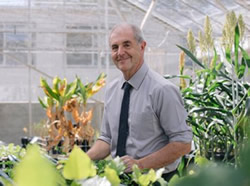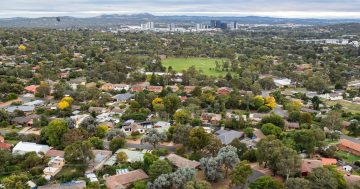 David Craik, of the University of Queensland (UQ), has been elected as a Fellow of the Royal Society in recognition of his outstanding contribution to science.
David Craik, of the University of Queensland (UQ), has been elected as a Fellow of the Royal Society in recognition of his outstanding contribution to science.
Professor Craik (pictured) is the second researcher from UQ’s Institute for Molecular Bioscience to be elected to the society whose past Fellows include Charles Darwin, Sir Isaac Newton and Sir Stephen Hawking.
Professor Craik discovered and named cyclotides in the early 1990s, a family of mini-proteins in plants that are revolutionising medicine and agri-chemicals.
He said the really great thing about cyclotides was that they were eco-friendly insecticides that were non-toxic to beneficial pollinators such as bees.
As a result an Australian company, Innovate Ag, had developed a bee-friendly product from butterfly pea plants containing cyclotides that was approved for the protection of crops such as cotton and vegetables.
“It’s so rewarding to see that peptide-based products are having a real impact in protecting Australia’s food and fibre crops,” Professor Craik said.
He said he also wanted to harness cyclotides to provide low-cost medicines by re-engineering and adapting them to create new medicines in plants.
“This is shaping up as a growth area for the future of health to treat cancer or pain, and in our lifetime treatment could be as simple as eating a sunflower seed or drinking a cup of tea brewed from designer plants,” Professor Craik said.
He said he had found out about his election to the Royal Society while eating dinner with his wife in a restaurant overlooking the Brisbane River.
“I was stunned — this recognition is something I could never have dreamt of, growing up in the outer suburbs of Melbourne and the first person in my family to go to university,” he said.
Professor Craik is one of two Australians elected to the Royal Society this year who join UQ Fellows, Peter Visscher, Ian Frazer and quantum physicist, Gerard Milburn.











